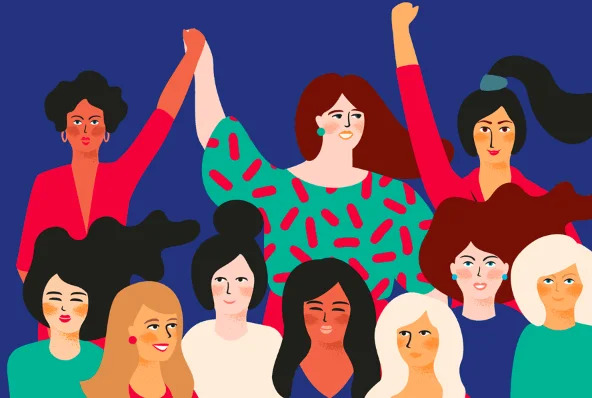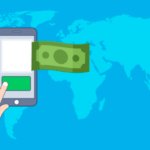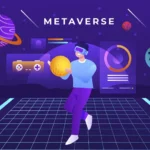Have you heard about Ada Lovelace Day?
If you haven’t, chances are high this article with surprise you with a number of women who had a huge impact on the tech world. To celebrate their achievements and hard work that oftentimes wasn’t noticed as it deserved, Ada Lovelace Day was created on October, 11th.
In this article, we’ll celebrate the enormous impact women in the tech industry created ‒ both in the past and present day.

Ten women who changed the tech world
We’ll open the list with probably the most outstanding figure ‒ Ada Lovelace herself. She was born to Lord Byron’s (yes, the poet) family, but her analytical mind allowed her to shine in the technical field. For the 19th century, this was huge.
Ada worked with Charles Babbage on the creation of an analytical engine ‒ a theoretical and somewhat sophisticated calculator that could be programmed for different tasks. This is how the first-ever computer prototype was brought to light. And if you remember Alan Turing and his work on the Enigma code, know that Alan took inspiration for his deciphering device from Ada’s work.
Grace Hopper
If your field of expertise is digital technology, you’ve most certainly heard about Grace. She was one of the first-ever programmers to work on the first computers. As a result, Grace became the inventor of a very early programming language COBOL and the first computer bug investigator.
Hedy Lamarr
Did you know that the working principle for WiFi was invented during World War Two? HedyLamarr was not a scientist but a passionate inventor and actress. In 1942, her “special communication system” received a patent. Originally radiofrequency-hopping technology was invented to set torpedoes guided by radiowaves off-course, but decades later, this concept was implemented in the creation of WiFi and other wireless communication technologies.
Annie Easley
Being a woman and one of the very few black NASA employees, Annie fought with passion for racial and gender diversity in the industry. But there’s more to her achievements! Annie was a hard worker who was experienced in computer science, being a part of different teams working on computer support for NASA programs. Her work was essential for the development of space shuttle launch programs.
Mary Wilkes
When personal computers were still something rare and hard to handle, Mary took a challenge and became the developer of the first personal computer programs. She mastered her LINC, becoming the first ever home computer user as well in 1965.
Adele Goldberg
The original Apple computer was influenced by the programming language Smalltalk-80, which Adele helped create. She participated in the development of Smalltalk ‒ a programming language that was intended to give the first personal computers a more user-friendly interface instead of strings of code. Later, her research became fundamental for the creation of modern graphic interfaces we use on a daily basis.
Radia Perlman
Radia is also known as the “mother of the Internet”. She invented an algorithm that connected different devices connected to a single network. Later, this will develop into what we consider a modern Internet protocol. Radia laid the rules of Internet traffic and data exchange, constantly working on improving her invention. To this day, she stays true to her passion for computers, working for Dell as an engineer.
Katherine Johnson
Katherine worked in NASA with probably the most important space program component: trajectory analysis. This woman is behind the first successful US space flight, manually calculating the trajectory. Her talent allowed humans to visit the orbit first, and then head out for other space missions safely.
Karen Sparck-Jones
If you’re into SEO, you’ve probably heard about Karen. She is an inventor of the IDF protocol ‒ a computer science protocol that analyses word density in the document. Her invention led to the spark in the search engine optimization field, ranking documents based on their relevance.
Elizabeth Feinler
What was before the Google? There was an Internet for scientists ‒ NIC, or Network Information Center. This is where Elizabeth was a key figure in developing complex file directory networks that operated between different scientific institutions for faster data access. While working at the NIC, Elizabeth also was a part of the team that created the most popular Internet domains ‒ .gov, .com, .net, and many, many others we use up until this day.
Women who change the tech industry today
We chatted with a number of women who are now reshaping the IT industry and asked each a somewhat intriguing question: What is it like being a woman in tech?
The thing is, when your girls see female role models working in science, they get thrilled just from knowing that a girl can become an astronaut or a space engineer.
Five important women in the modern technology industry ‒ five answers to that very important question.
- Kike Oniwinde, CEO of BYP Network, said that women in tech essentially break barriers all the time to create a clearer path for other women who aspire to work in this industry.
- Chelsea Brown, certified cyber security consultant. Her opinion is that women in tech essentially have to explain the basic things about cyber security and informational hygiene to their families and even enterprises.
- Cristina Ivanciuc, a tech leader and project lifecycle manager, states that it’s a both rewarding and very challenging path, as the gender gap in the industry is still quite big in most countries. The secret is to find your unique attitude and stick to it. Be guided and guiding, being a consultant and a student at the same time.
- Andrea Loubier, the founder of Mailbird, finds being a woman in the tech industry amusing. Being initially a part of the team leads to moving the industry forward, and this is very inspiring.
- VyLuu ‒ GM at Real Estate Webmasters, says that being a woman in the tech industry requires courage to keep up with the industry standard set by men.
Being a woman puts a burden on many responsibilities: you have to be professional, modest, and yet, beautiful and polite. On Ada Lovelace Day, we cheer every woman who stood on the roots for modern digital stories.






